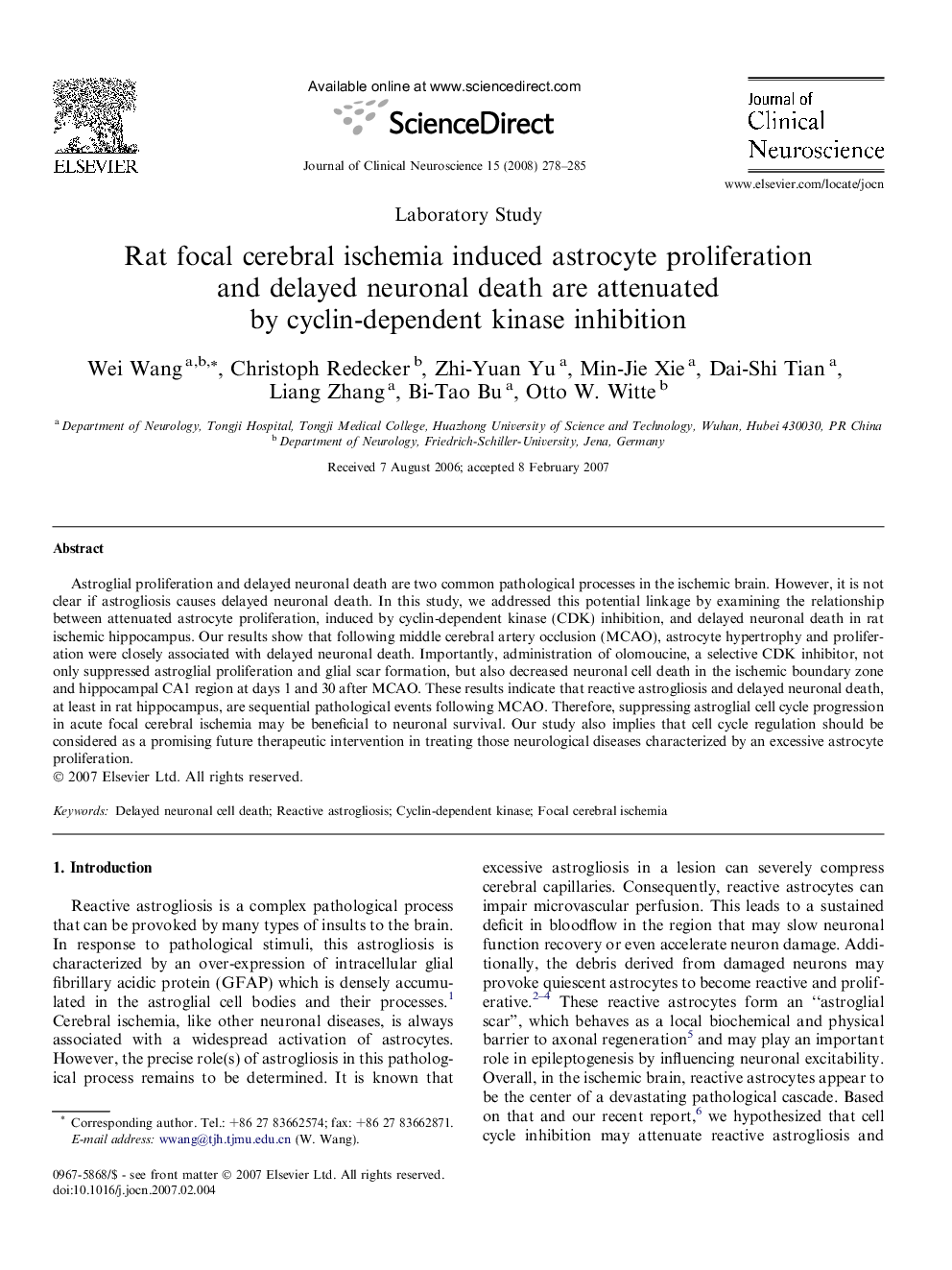| Article ID | Journal | Published Year | Pages | File Type |
|---|---|---|---|---|
| 3062223 | Journal of Clinical Neuroscience | 2008 | 8 Pages |
Astroglial proliferation and delayed neuronal death are two common pathological processes in the ischemic brain. However, it is not clear if astrogliosis causes delayed neuronal death. In this study, we addressed this potential linkage by examining the relationship between attenuated astrocyte proliferation, induced by cyclin-dependent kinase (CDK) inhibition, and delayed neuronal death in rat ischemic hippocampus. Our results show that following middle cerebral artery occlusion (MCAO), astrocyte hypertrophy and proliferation were closely associated with delayed neuronal death. Importantly, administration of olomoucine, a selective CDK inhibitor, not only suppressed astroglial proliferation and glial scar formation, but also decreased neuronal cell death in the ischemic boundary zone and hippocampal CA1 region at days 1 and 30 after MCAO. These results indicate that reactive astrogliosis and delayed neuronal death, at least in rat hippocampus, are sequential pathological events following MCAO. Therefore, suppressing astroglial cell cycle progression in acute focal cerebral ischemia may be beneficial to neuronal survival. Our study also implies that cell cycle regulation should be considered as a promising future therapeutic intervention in treating those neurological diseases characterized by an excessive astrocyte proliferation.
